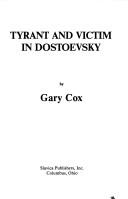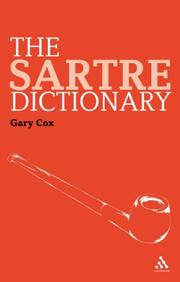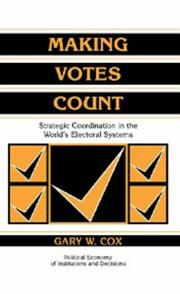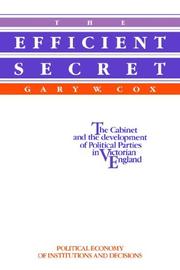| Listing 1 - 10 of 20 | << page >> |
Sort by
|
Book
ISBN: 9789028980211 9789086871438 9086871437 9028980210 Year: 2014 Publisher: Zoetermeer Klement
Abstract | Keywords | Export | Availability | Bookmark
 Loading...
Loading...Choose an application
- Reference Manager
- EndNote
- RefWorks (Direct export to RefWorks)
Filosoferen, hoe doe je dat? is een toegankelijke en vakkundige handleiding bij vragen waar filosofen al eeuwenlang op kauwen.Lees het en je zult bovendien leren om- te denken, spreken, redeneren en overtuigen als een filosoof;- vraagtekens te zetten bij schijnbare vanzelfsprekendheden;- te beseffen dat bijna niets zeker is;- helderder en eerlijker na te denken over je eigen leven.
Philosophy --- Filosofie --- Philosophie --- Wijsbegeerte --- 101 --- aard en functie van de filosofie --- 110 --- Wijsbegeerte ; inleidingen
Book
ISBN: 9781474235334 1474235336 1474235352 1474235344 Year: 2016 Publisher: London Bloomsbury Academic
Abstract | Keywords | Export | Availability | Bookmark
 Loading...
Loading...Choose an application
- Reference Manager
- EndNote
- RefWorks (Direct export to RefWorks)
Jean-Paul Sartre is an undisputed giant of twentieth-century philosophy. His intellectual writings popularizing existentialism combined with his creative and artistic flair have made him a legend of French thought. His tumultuous personal life - so inextricably bound up with his philosophical thinking - is a fascinating tale of love and lust, drug abuse, high profile fallings-out and political and cultural rebellion. This substantial and meticulously researched biography is accessible, fast-paced, often amusing and at times deeply moving. Existentialism and Excess covers all the main events of Sartre's remarkable seventy-five-year life from his early years as a precocious brat devouring his grandfather's library, through his time as a brilliant student in Paris, his wilderness years as a provincial teacher-writer experimenting with mescaline, his World War II adventures as a POW and member of the resistance, his post-war politicization, his immense amphetamine fueled feats of writing productivity, his harem of women, his many travels and his final decline into blindness and old age. Along the way there are countless intriguing anecdotes, some amusing, some tragic, some controversial: his loathing of crustaceans and his belief that he was being pursued by a giant lobster, his escape from a POW camp, the bombing of his apartment, his influence on the May 1968 uprising and his many love affairs. Cox deftly moves from these episodes to discussing his intellectual development, his famous feuds with Aron, Camus, and Merleau-Ponty, his encounters with other giant figures of his day: Roosevelt, Hemingway, Heidegger, John Huston, Mao, Castro, Che Guevara, Khrushchev and Tito, and, above all, his long, complex and creative relationship with Simone de Beauvoir. Existentialism and Excess also gives serious consideration to Sartre's ideas and many philosophical works, novels, stories, plays and biographies, revealing their intimate connection with his personal life.
Book
ISBN: 9780826444035 0826444032 9780826423184 0826423183 9786612874543 1441143084 1282874543 9781441143082 9781282874541 6612874546 9781472547446 1472547446 Year: 2009 Publisher: London New York Continuum
Abstract | Keywords | Export | Availability | Bookmark
 Loading...
Loading...Choose an application
- Reference Manager
- EndNote
- RefWorks (Direct export to RefWorks)
Sartre and Fiction offers a clear and accessible introduction to the extensive fictional writings of Jean-Paul Sartre. Providing comprehensive coverage of his short stories, novels and plays, the book examines the close links between the ideas and themes in his fiction and those put forward in his formal philosophical works. Sartre wrote fiction as a means of developing and enriching his philosophical ideas. Gary Cox reveals the extent to which Sartre's fictional writings are truly philosophical and an integral part of his overall intellectual vision. He also explores the ways in which Sartre'

ISBN: 0893571253 Year: 1984 Publisher: Columbus, Ohio : Slavica Publishers,
Abstract | Keywords | Export | Availability | Bookmark
 Loading...
Loading...Choose an application
- Reference Manager
- EndNote
- RefWorks (Direct export to RefWorks)
Book
ISBN: 1474235344 9781474235358 1474235352 9781350011373 1350011371 9781474235341 9781474235334 1474235360 9781474235365 Year: 2016 Publisher: New York
Abstract | Keywords | Export | Availability | Bookmark
 Loading...
Loading...Choose an application
- Reference Manager
- EndNote
- RefWorks (Direct export to RefWorks)
Philosophers --- Philosophy, French --- Existentialism. --- Existenzphilosophie --- Ontology --- Phenomenology --- Philosophy, Modern --- Epiphanism --- Relationism --- Self --- Sartre, Jean-Paul, --- Sartre, Jean-Paul --- Sartŭr, Zhan-Pol --- Sartr, Zhan-Polʹ --- Sārtar, Jān-Būl --- Sārtar, Zhān-Pūl --- Sha-tʻe --- Sartre, J.-P. --- Sa-tʻe --- Sate --- Sa-tʻe, Jang-Pao-erh --- Sate, Rangbao'er --- Sāt, Chō̜ng-Pō̜n --- Sarutoru --- Sarṭr, G'on Pol --- Chō̜ng-Pō̜n Sāt --- Cārttar, L̲ān̲-Pōl --- Сартp, Жан-Поль, --- סארטר, ג׳אן פול --- סארטר, ג׳אן פון --- סארטר, ז׳אן פול --- סארטר, ז׳אן־פול, --- سارتر، جان پول --- Guillemin, Jacques --- Sārtra, Jyām̐ Pāla --- サルトル, ジャン ポール
Book
ISBN: 9781623564292 Year: 2013 Publisher: New York Bloomsbury
Abstract | Keywords | Export | Availability | Bookmark
 Loading...
Loading...Choose an application
- Reference Manager
- EndNote
- RefWorks (Direct export to RefWorks)
Book
ISBN: 9781316506097 9781107140622 1316506096 1107140625 9781316493007 131656665X 1316564274 1316493008 Year: 2016 Publisher: New York, N.Y. Cambridge University Press
Abstract | Keywords | Export | Availability | Bookmark
 Loading...
Loading...Choose an application
- Reference Manager
- EndNote
- RefWorks (Direct export to RefWorks)
How did England, once a minor regional power, become a global hegemon between 1689 and 1815? Why, over the same period, did she become the world's first industrial nation? Gary W. Cox addresses these questions in Marketing Sovereign Promises. The book examines two central issues: the origins of the great taxing power of the modern state and how that power is made compatible with economic growth. Part I considers England's rise after the revolution of 1689, highlighting the establishment of annual budgets with shutdown reversions. This core reform effected a great increase in per capita tax extraction. Part II investigates the regional and global spread of British budgeting ideas. Cox argues that states grew only if they addressed a central credibility problem afflicting the Ancien Régime - that rulers were legally entitled to spend public revenue however they deemed fit.
History of the United Kingdom and Ireland --- Economic conditions. Economic development --- United Kingdom --- Taxing power --- Sovereignty --- Debts, Public --- Economic development --- Debts, Public. --- Diplomatic relations. --- Economic development. --- Politics and government. --- Sovereignty. --- Taxing power. --- Finanzwirtschaft. --- Öffentliche Schulden. --- History --- History. --- Great Britain --- Great Britain. --- Gro�britannien. --- Foreign relations. --- Development, Economic --- Economic growth --- Growth, Economic --- Economic policy --- Economics --- Statics and dynamics (Social sciences) --- Development economics --- Resource curse --- Debts, Government --- Government debts --- National debts --- Public debt --- Public debts --- Sovereign debt --- Debt --- Bonds --- Deficit financing --- State sovereignty (International relations) --- International law --- Political science --- Common heritage of mankind (International law) --- International relations --- Self-determination, National --- Power of taxation --- Taxation, Power of --- Constitutional law --- Taxation --- Law and legislation --- England --- Politics and government

ISBN: 9780826498922 0826498914 9780826498915 0826498922 Year: 2008 Publisher: New York Continuum
Abstract | Keywords | Export | Availability | Bookmark
 Loading...
Loading...Choose an application
- Reference Manager
- EndNote
- RefWorks (Direct export to RefWorks)
Sartre, Jean-Paul, --- Sartre, Jean-Paul --- Sartŭr, Zhan-Pol --- Sartr, Zhan-Polʹ --- Sārtar, Jān-Būl --- Sārtar, Zhān-Pūl --- Sha-tʻe --- Sartre, J.-P. --- Sa-tʻe --- Sate --- Sa-tʻe, Jang-Pao-erh --- Sate, Rangbao'er --- Sāt, Chō̜ng-Pō̜n --- Sarutoru --- Sarṭr, G'on Pol --- Chō̜ng-Pō̜n Sāt --- Cārttar, L̲ān̲-Pōl --- Сартp, Жан-Поль, --- סארטר, ג׳אן פול --- סארטר, ג׳אן פון --- סארטר, ז׳אן פול --- סארטר, ז׳אן־פול, --- سارتر، جان پول --- Guillemin, Jacques --- Sārtra, Jyām̐ Pāla --- サルトル, ジャン ポール --- Sartre, Jean-Paul (1905-1980) --- Dictionnaires

ISBN: 1316142396 1316141268 0521585279 1316139573 1316143244 1316140709 1139174959 0521585163 9780521585279 9780521585163 9781139174954 131613895X 1316046214 9781316140703 9781316142394 1322177384 Year: 2007 Publisher: Cambridge Cambridge University Press
Abstract | Keywords | Export | Availability | Bookmark
 Loading...
Loading...Choose an application
- Reference Manager
- EndNote
- RefWorks (Direct export to RefWorks)
Popular elections are at the heart of representative democracy. Thus, understanding the laws and practices that govern such elections is essential to understanding modern democracy. In this book, Cox views electoral laws as posing a variety of coordination problems that political forces must solve. Coordination problems - and with them the necessity of negotiating withdrawals, strategic voting, and other species of strategic coordination - arise in all electoral systems. This book employs a unified game-theoretic model to study strategic coordination worldwide and that relies primarily on constituency-level rather than national aggregate data in testing theoretical propositions about the effects of electoral laws. This book also considers not just what happens when political forces succeed in solving the coordination problems inherent in the electoral system they face but also what happens when they fail.
Elections. --- Voting. --- Comparative government. --- Comparative political systems --- Comparative politics --- Government, Comparative --- Political systems, Comparative --- Polls --- Electoral politics --- Franchise --- #A9708A --- Political systems --- Political science --- Elections --- Politics, Practical --- Social choice --- Suffrage --- Plebiscite --- Political campaigns --- Representative government and representation --- Voting --- Comparative government --- Vote --- Institutions politiques comparées --- Balloting --- Social Sciences --- Political Science --- Élections --- Institutions politiques comparées --- Système électoral --- Etudes comparatives --- Élections --- Système électoral

ISBN: 051157147X 0521327792 052101901X Year: 1987 Publisher: Cambridge : Cambridge University Press,
Abstract | Keywords | Export | Availability | Bookmark
 Loading...
Loading...Choose an application
- Reference Manager
- EndNote
- RefWorks (Direct export to RefWorks)
The Efficient Secret is an analysis of the institutional changes in parliamentary government in nineteenth-century England, concentrating on the years between the first and third Reform Acts. Professor Gary W. Cox employs a rational choice model to analyze the problems of voter choice and to examine the emergence of party loyalty in the electorate, the development of cabinet government, and their legislative consequences. The introductory chapters provide the historical setting for this study and briefly survey nineteenth-century political and economic events. Professor Cox then focuses on the increases in party voting in Parliament and in the electorate. To support his argument concerning these parallel developments, he uses statistical evidence drawn from poll books and newspapers.
Political parties --- Elections --- Voting --- Cabinet system --- Cabinet government --- Parliamentary government --- Political science --- Representative government and representation --- Polls --- Politics, Practical --- Social choice --- Suffrage --- Electoral politics --- Franchise --- Plebiscite --- Political campaigns --- Parties, Political --- Party systems, Political --- Political party systems --- Divided government --- Intra-party disagreements (Political parties) --- Political conventions --- History --- Great Britain --- Politics and government --- Balloting --- Social Sciences --- Political Science
| Listing 1 - 10 of 20 | << page >> |
Sort by
|

 Search
Search Feedback
Feedback About UniCat
About UniCat  Help
Help News
News